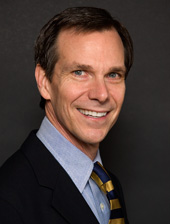The Power of Self-Disclosure
When people ask me what I do, I am ready with a ten-second sound bite. In the length of time it takes for an elevator to travel one floor, I can summarize my work: "I help businesspeople become more powerful communicators through self-awareness, self-disclosure, self-acceptance, and skill development."
In the past, I have written a good bit about self-awareness and skill development, and some on self-acceptance, but I have yet to write on self-disclosure. For me, self-disclosure is the hardest piece of the puzzle, yet it is so important. Communicating without disclosing self is like trying to play tennis without a ball.
In the past, I considered myself a strong communicator. I was somewhat self-aware, I liked myself, and I had excellent speaking skills. Still, I was not getting the results I wanted.
An intensively private person, I kept my own counsel; rarely did I share my personal life at work. Also standoffish in my personal life, I didn't have many close friends.
At work, authoritative and unapproachable, I did not inspire loyalty from my staff, and while some clients valued my skills as a public relations professional, few felt any real affinity for me.
I often felt isolated, and at times invisible. I remember once standing with a group of peers at an agency management retreat and feeling lost. My peers seemed to be enjoying each others' company, but no one seemed to know, or care, that I was there. I didn't know yet you have to show up to be seen.
Self-awareness, self-acceptance, and self-disclosure; showing up is a three-step process. As I became more secure with Self, I could share myself with others. Soon, my personal and professional relationships improve.
Self-disclosure is composed of four elements: Open Self, Blind Self, Hidden Self and Unknown Self, according to Matthew McKay, Ph.D., Martha Davis, Ph.D., and Patrick Fanning, authors of Messages: The Communications Skills Book (New Harbinger Publications, Oakland, Ca.: 1995).
Open Self is that part of ourselves that is known to us and to others, and Blind Self is that part of ourselves we don't know and others do. Hidden Self is that part that is known to self but unknown to others, and Unknown Self is unknown to both us and other people.
If we think of self-disclosure as a pie made up of these four sections, we see that the size of each quadrant changes with each person with whom we interact. With some people, Open Self is the largest slice of the pie, and with others it is the smallest.
There is no set formula for how much we should disclose about ourselves; it changes from person to person and situation to situation. Still, the larger the Open Self piece, the more likely we are reaping the rewards of self-disclosure.
Self-disclosure offers many rewards, according to authors McKay, Davis, and Fanning. They include increased self-knowledge (we know ourselves to the extent we are known), closer and more intimate relationships, and improved communication (disclosure encourages disclosure).
We are always disclosing information about ourselves even when we are silent. When we do not share ourselves with others, they have no choice but to weave a story about whom they think we are. By choosing to share ourselves, we have a better chance of communicating our authentic selves and making true connections.
Sharing more through Open Self-disclosure is hard, however. First, there is a cultural bias. For example, when I wrote a monthly self-syndicated column on finding new life at midlife, some friends scolded me for sharing so much of my personal life.
Additionally, self-disclosure can feel risky. Sometimes, self-disclosure means sharing our vulnerability. We fear rejection, judgment, or that the information will be used to take advantage of us. And when we share something positive about ourselves, we fear people will think we are bragging.
I have found that self-disclosure is worth the risks almost always. The more information I shift into Open Self, the more open I am to becoming the powerful communicator I was born to be.
# # #
678 Words
Copyright 2003, All Rights Reserved
The Career Engineer" Randy Siegel works with organizations to take high-potential employees and give them the leadership and communications skills they need to be successful as they rise through the organization. Purchase his book PowerHouse Presenting: Become the Communicator You Were Born to Be through Amazon.com, and subscribe to his complimentary monthly e-Newsletter at www.buildyourleaders.com.



